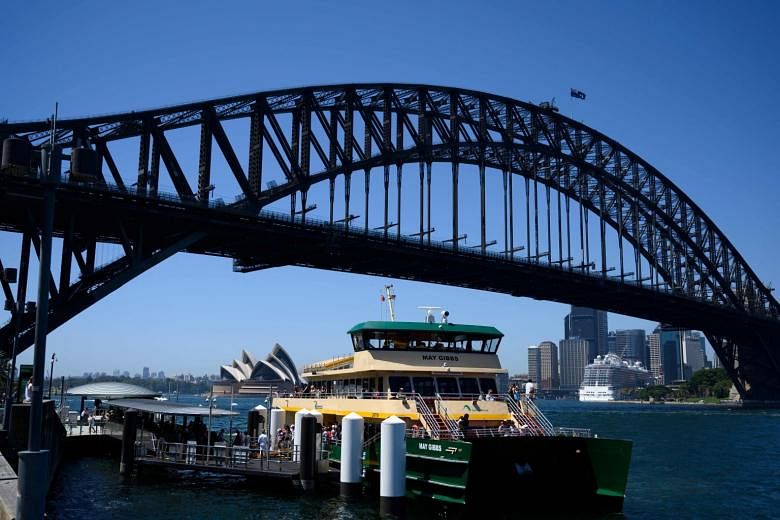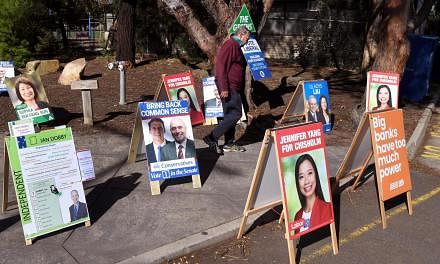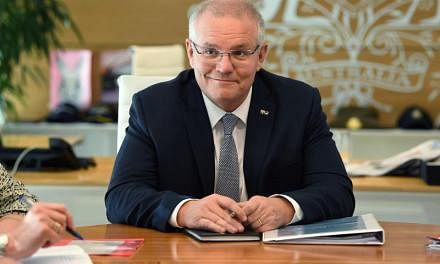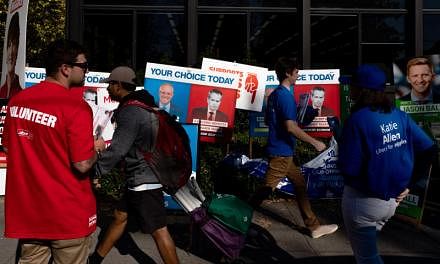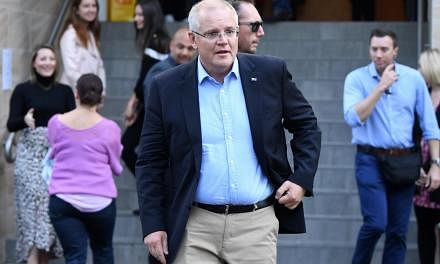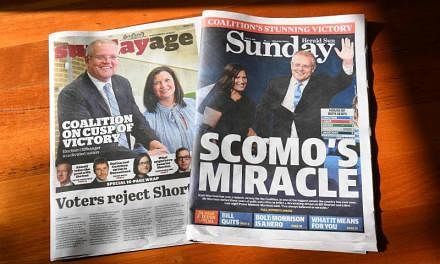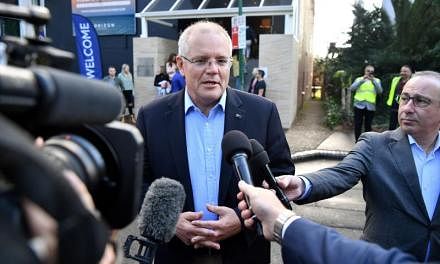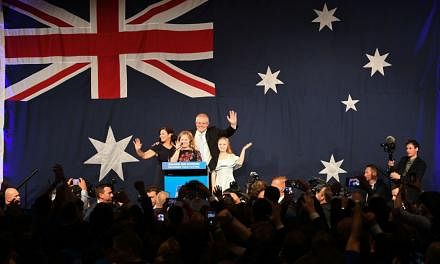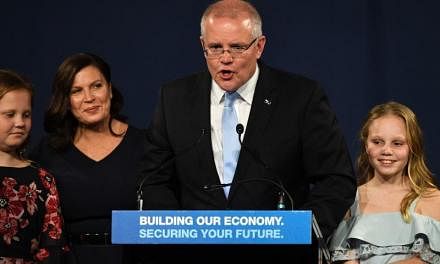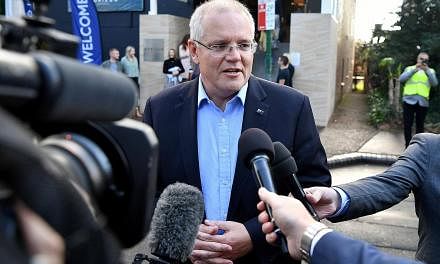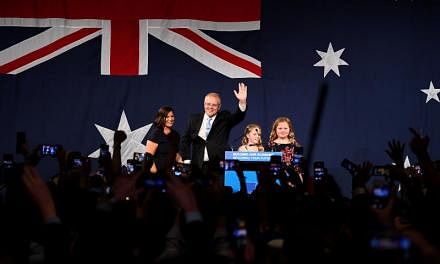SYDNEY (REUTERS) - Australia's political parties are campaigning in a general election set for May 18, with the fight focused on tax cuts, climate change and social programmes.
Below are party policies taken mainly from campaign programmes and pre-election announcements.
TAX CUTS
Ruling Liberal-National coalition:
- Proposes total tax cuts of A$158 billion (S$153 billion) over the period to 2029/30, in addition to A$144 billion in tax cuts passed by Parliament last year. Most of the new tax cuts will take effect after 2022, when the next election is due.
- Most of the early personal income tax cuts would benefit low- and middle-income earners. Tax rebate for middle-income earners to double in current financial year. Subsequent tax concessions would benefit wealthier Australians.
- Top threshold for 19 per cent tax bracket rises to A$45,000 in 2022/23 from A$41,000 currently. From 2024/25, the 32.5 per cent marginal tax rate would be reduced to 30 per cent, and apply to income between A$45,000 and A$200,000.
Opposition Labor:
- Labour has promised to match the coalition's planned tax cuts for workers earning between A$48,000 and A$126,000 a year, but also pledged a bigger rebate for people earning less than A$45,000. No changes to current tax brackets.
CLIMATE CHANGE
- The ruling coalition and opposition Labor are committed to the Paris Accord that requires member states to reduce emissions by 26 per cent from 2005 levels.
- The biggest differences centre on how much electricity must be generated by renewables. The coalition has a target of 26 per cent, while Labor proposes a minimum of 45 per cent. Labor also says half of all new cars will be electric by 2030.
- The coalition has been divided over energy policy and climate change and remains a strong backer of traditional energy sources. The tensions over energy policy were a catalyst for Mr Malcolm Turnbull's ouster as prime minister in August.
HEALTHCARE AND WELFARE
Liberal-National coalition:
- Proposes to spend more than A$80 billion on the public healthcare system in 2019/20.
- Access to cheaper medicines for cancer patients.
- Proposed A$725 million investment in residential care for elderly Australians.
Labor:
- Promises to outspend the coalition on healthcare spending, including more than A$2 billion to expand free cancer treatment.
- Proposes to increase the minimum wage, but has not given specific details. The party also pledges to raise pay for people who work on weekends and public holidays.
EDUCATION
Liberal-National coalition:
- The coalition promises record spending on education over the next decade.
Labor:
- The party pledges to outspend the government but has not given specific figures. It also plans to subsidise pre-school for children for two years.
DEFENCE
The coalition and Labor have pledged to spend 2 per cent of the country's gross domestic product on defence.
REFUGEES
- The coalition and Labor will keep the current policy of holding refugees who arrive by boat at two remote Pacific detention facilities.
- The coalition says it will reverse a law that allows doctors to recommend transfers from the Pacific centres if they are unable to get the necessary medical treatment. Labor has promised to maintain the medical transfer policy.
